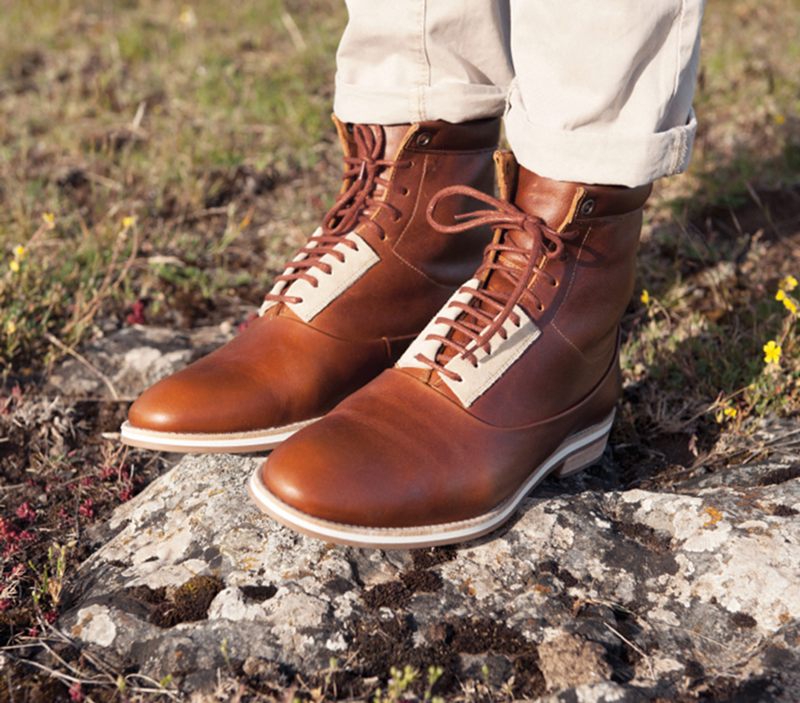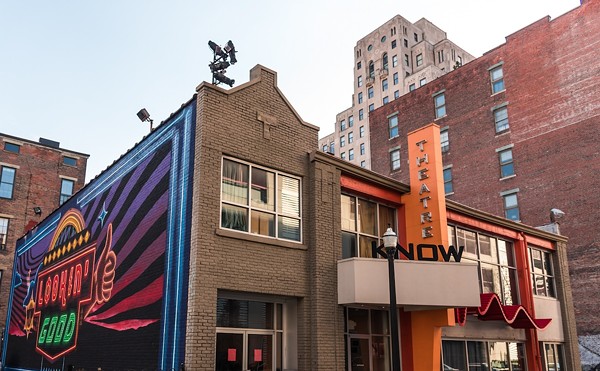Deciphering the origin of your coffee or fruit and vegetables may be easier today than a decade ago, but accountable apparel companies are still hard to find.
Not with Piola. The socially and environmentally friendly shoe line, created by University of Cincinnati graduates Antoine Burnier-Dechon and Josh Rudd, is sold in 130 stores in 12 countries. Finding the high-end shoes’ origins is as easy as reading their online descriptions. Each shoe material is described by location — like leather from Portugal or rubber from Peru’s Amazon rainforest.
It’s in the Amazon where Piola works with a farm collective operated by the United States Agency for International Development and the World Wildlife Fund. The agencies teach 33 Southeast Peruvian farmers how to extract latex sap from jungle trees without harm. Piola then pays five times rubber’s market price to produce shoe soles.
For Peruvians, who make around $4,000 to $13,000 (U.S. dollars) a year, that’s piola, or “cool” in Peruvian Spanish.
Burnier-Dechon first heard the term when working with homeless teens at a Lima, Peru nonprofit through UC as a graduate student in 2007. Many teens played soccer in tattered shoes, shouting “Piola!” after scored goals.
“We always wanted to design from the sole up,” says Rudd, who met Burnier-Dechon, then a French foreign exchange student, in a class at UC. “We started with rubber before shoe designs were in place.”
Burnier-Dechon had conceptualized the men’s shoe line when he enrolled in UC’s new venture course in 2010. Charles Matthews, professor of entrepreneurship and strategy, partnered him with Rudd to edit the plan.
Starting a business was nothing new for Rudd. In 2009, the entrepreneurship and international business major helped to launch the now-$2 million energy auditing company Capacity Energy Solutions.
“I sensed they were both very focused on making the business work,” Matthews says. “Not just the business, but also on the sustainability, particularly the environmental impact and value of workers, which they focused on right at the very beginning.”
Focus like that helped Piola earn $5,000 in 2012 from the Bearcat Bridge fund, which supports 14 UC student ventures annually.
In 2011, Rudd and Burnier-Dechon launched their ethical shoe company Piola (and later partnered with two of the latter’s high school friends). But don’t confuse Piola with that other socially conscious shoe line.
“We grew out of a social position, like TOMS,” Rudd says, “but we have more of a fashion stance, with high quality materials and advanced designs.”
Piola started with canvas shoes like TOMS, but the line now has a sleek, urban appeal, with styles like formal trainers, derby shoes and ankle boots. The shoes provide a living wage for the Portuguese factory workers and Peruvian rubber and cotton farmers that make them. The first collection’s soles branded the rubber farmers’ names. Now, customers can watch videos about the farmers online.
Today, fair trade items are a growing opportunity for small business owners and niche designers like Piola. A 2013 study by New York University’s school of business reported that 60 percent of shoppers are willing to pay higher prices for fair trade items.
That’s a stark contrast from the 1980s globalization boom, which fueled cheap overseas production by U.S. companies. In 2012, a survey found that 89 percent of leading apparel producers were poised to relocate to Bangladesh due to low prices and high factory capacities. Deals like those fueled tragedies like the country’s factory fire in 2012, then factory collapse in 2013.
Then there’s Nike, which was forced into production transparency after a 1990s global boycott (yet still withholds some factory information). Rudd says paying five times rubber’s market price for soles, like Piola, would only make a 1 percent difference in revenue for the $28 billion company.
“Corporations have a responsibility to be equitable,” Rudd says. “It’s more than a feel-good marketing attempt — it’s expected now.”
Piola combines those ethics with fashion. French shoe designer Eugène Riconneaus created the 10 men’s styles and the first three women’s styles in last summer’s collection. Next winter Piola will release an athletic sneaker designed by New York City DJ and magazine editor Bobbito García. Prices range from $150 to $425. By April the company, which has sextupled production in the last five years, will be sold at nordstrom.com.
“We were always very interested in the fashion scene for shoes,” Burnier-Dechon says. “There are many high quality materials in Peru, and people want to know how the product is made, by who and where. That’s how we were able to link the two — Peru and sneakers.”
For more info on PIOLA SHOES, visit piola.fr.






